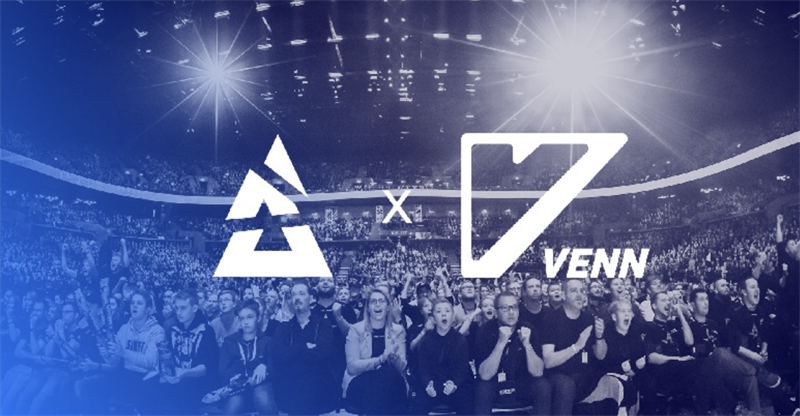The popularity of Fortnite after just one year show how gaming is changing life – and sport
The symbiotic relationship between gaming and sport is only strengthening
Today is a special day in the gaming community as Fortnite — the battle-royale style video game developed by Epic Games — turns one year old. Though it’s a young game, it’s already grown to become a giant in the industry, totaling 125 million players and a revenue of $318m in just May of this year.
Fortnite is 1 year old today!
????????125 million players
???? 11M mobile downloads
???? Revenue just in May ‘18: $318M
???? 69% of players spend £ on the game
???????? 58.9% of purchases made were of skins (18% gliders, 13.5% harvesting tools, 9.5% emotes)
???? Avg £ players spend: $58.25 pic.twitter.com/jWskHgNmzY— Steven Dent (@steven_dent) July 24, 2018
It’s frankly stunning the way Fortnite has captured the interest of gamers — both casual and competitive — across the world. The game has grown to unforeseen heights, and it’s a sign of the times we live in.
But what does this mean? It might be easy to accept in a vacuum Fortnite and the gaming industry’s growth as a direct result of the increasing prominence of technology in our society. And that’s in large part the case. But the way gaming has pervaded throughout the world in the last decade has diversified the way it influences the different breadths of society.
Take eSports. Though it might seem flat out confusing to an older population that not only do thousands of people play all of these games but that a significant amount of people watch this happen on streams, it can’t be denied that eSports is both popular and expanding.
The sports industry is one of the prime examples of this, as more and more teams and leagues are realizing the potential benefits of eSports. The NBA has established the wildly popular NBA 2K League, the NHL has established the LeagueGaming Hockey League and MLS partnered with EA Sports last April in a groundbreaking development which has resulted in eMLS. And that’s just in North America.
But revenue and pounds and pence aren’t the only reasons the leagues are doing this. It’s not just an opportunity to make a quick buck — it’s a chance to introduce a sports league to a type of person who never would have considered it before they picked up a controller.
As the fifth most popular league in American sports — it’ll likely never eclipse the current Mount Rushmore of the NFL, NBA, MLB and NHL — the MLS has to get a little bit more creative than everyone else in order to grow its fan base. Thanks to the globalization of soccer, a natural flow of soccer fans have come to the MLS, but that’s not enough, especially with the popularity of eSports where it currently is.
According to Samit Sarkar of Polygon, “MLS fans are twice as likely to be gamers as the average sports fan in North America, according to 2017 data from Simmons Research. And in a survey that the league conducted in 2014, it found that about two-thirds of avid MLS fans pointed to EA’s FIFA series as the first thing that got them interested in soccer.”
For established organizations like the MLB and NFL — which have been ingrained in American society since the early 20th century — this isn’t necessarily a market they need to invest in. Especially because the fans of those leagues are of an older demographic. But leagues that have room to grow know how important eSports are.
To me, one of the most glaring example of the lightning rod eSports has become is the way it has broken into the niches of the sports landscape. Compared to the major sports leagues in the country, NASCAR occupies just a small pocket of American sports fandom. When one imagines NASCAR fandom, what comes to mind is cutoff beer logo t-shirts and Kenny Chesney, not video games.
Yet, just like the MLS, NASCAR views the industry as a means of cultivating a more vast and diverse fan base. In the same way that playing Madden or FIFA gets one familiarized with the rules of the game and thus makes watching the sport more relatable, playing a NASCAR video game can accustom one to the intense ferocity of a high-speed race. The same goes for Formula 1, which launched its own esports series last year.
eSports hasn’t just brought fans to the sport though. Amazingly, NASCAR driver William Byron found his racing roots by playing iRacing. Twenty years ago — or ten, for that matter — the idea of video games introducing athletes to a particular sport would have seemed beyond the bounds of possibility.
But it happened, and as odd as it might seem to watch a simulation of a sport when broadcasts of real-life action are offered, it’s a spreading and captivating industry that’s not going away any time soon. Never has it been more clear the influence gaming is having on sports, and the symbiotic relationship is thriving.
About author
You might also like
F1 Esports Comes to EA Games in Mobile Racing Game With Huge Prizes Up for Grabs
First F1® Esports tournament comes to Real Racing 3 game this August Exclusive prizes up for grabs, including the chance to attend a Grand Prix™ Update will also see new F1® 2021
Venn & Blast Team Up To Fuel Esports Expansion
New Strategic Partnership and Multi-Faceted Relationship Spans Esports Programming & Event Production First Collaboration To Debut at BLAST Premier Global Final on January 24, 2021 VENN, the global media network
Espo offers exclusive pre-launch access and announces new partnerships with BBG, Team BDS and BOOM Esport
Espo, the fan engagement platform that rewards collaboration between world-class esports teams, players, fans and sponsors, has expanded its roster of team partners with the addition of 3 international organizations:








